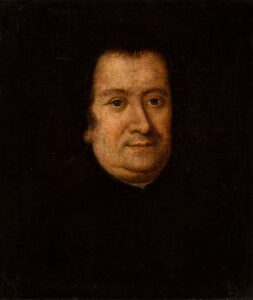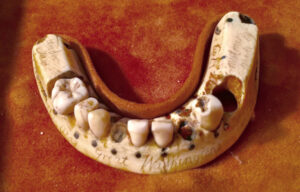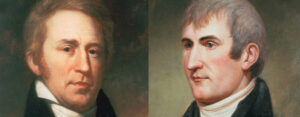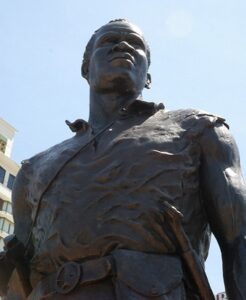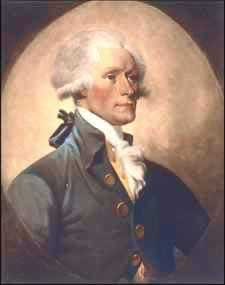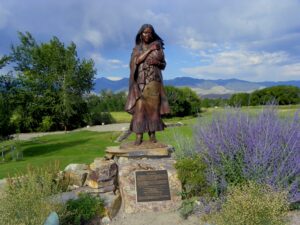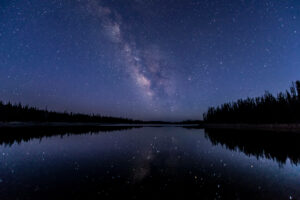Americanism Redux
August 3, your today, on the journey to the American Founding, 250 years ago, in 1773
Oh my God. He’s dead. We’re still here but we won’t have him any longer. That sweet face and kind eyes. Generous heart and active mind. Gone.
Now what?
That’s the feeling today, 250 years ago, and hour by hour it will flow out of the chamber where the dead man lays. From the chamber and down the hall through the building. From the building to the streets of the city. From the city to the rest of this young nation, quivering in uncertainty and weakness.
Hungry empires sit in the tops of nearby trees, talons gripping the branches until they launch and fly down upon us, screaming in attack.
Then what?
The mourning is for man who died today, in Warsaw, Poland. Stanislaw Konarski’s death has come a few weeks before his 73rd birthday. He’s adored by many people in Poland. Catholic priest, educational reformer and expert, nurturer and protector and promoter of the Polish language, writer of legal theory and designer of a system meant to discourage stalemates and logjams in governing assemblies. All of it, every word and sentence, he did in the name of upholding the idea of a Polish nation, free and self-governing. Konarski is, was, one of the leaders of a hopeful Poland who helped keep the past alive, the present active, and the future accessible. God Almighty he will be missed, starting today, 250 years ago.
The tree branches are empty but the sky has a streak in it.
(Konarski as a younger man)
**************************************************************************
Where’s the laudunum? Where’s the painkiller? He needs to take it. Damn, the pain is awful.
The inside of his mouth is red and swollen. His mouth fills with saliva—it won’t stop—and every few minutes he’s spitting. The color is pink.
He puts his tongue against one of the few teeth he still has left. The tooth moves. Searing pain. Throbbing pain. This slight little movement created by his tongue on the tooth feels like a needle stabbing upward into his brain. Feels like it’s killing him.
Don’t touch it again. Just don’t touch it. That’s about the only remedy left after trying everything else—just don’t touch the damn thing.
His spit-filled mouth aflame, George Washington leans carefully over the letter he’s writing to his friend, Jonathan Boucher, Governor of the colony of Virginia. “Like Macbeth, it has murdered Sleep beyond the Power even of Laudanum to recall.” For a second, the tooth stands still as he writes with the quill pen.
Too bad Shakespeare wasn’t a dentist.
(Washington’s dentures-the open spot is for his good tooth)
Also
Today, 250 years ago, in the colony of Virginia where George Washington’s tooth controls his entire world, a pair of babies lay in their cribs. Their homes are in different counties but they were born on the same day, forty-eight hours ago. One is William, and one is Meriwether. One is Clark, and one is Lewis. In the future life reverses the order and they’ll forever be known as Lewis and Clark.
(William Clark – Meriwether Lewis)
Today, 250 years ago, a father watches his three-year old son walking and stumbling towards him. It’s a hot day and there is a lot of work to do with the tobacco plants, but the father is tired and wants to enjoy his young toddler-son. What’s in store for them? Can’t know for sure other than the natural thing—the father wants his son to do well. Something else is true, though. The father feels a deep connection to his son. That’s why he gave him his same name—to help him stay strong and true to himself in a world that usually seeks to undermine both. The father turns as he hears someone yelling his name. “York!” “York get over here!” He gets up and before he leaves, pats his son on the head. Little York. On the same plantation where young William Clark is just two days old next to the county where Meriwether Lewis is just two days old.
(York the Younger, all grown up and, ultimately, a free man)
Today, 250 years ago, and it’s still in Virginia where thirty-year old Thomas Jefferson struggles to arrange things. He’s an arranger by nature: putting things in order, clean lines and angles, categorization, linear sequences, weight and counterweight, and so on. But not now. His life is, to him, a mess. He can’t serve as an elected member of the colonial legislature because Governor Jonathan Boucher refuses to call it into session. His best friend and brother-in-law have recently died, his father-in-law has recently died, and now both families and their enslaved black workers are his responsibility by inheritance or informal assumptions; he’s actually indirectly related to at least one of the enslaved children, Sally Hemings, half-sister to Jefferson’s wife (and, in the future, Jefferson’s lover). Everywhere Jefferson turns disarray assaults his senses. He’s made a decision: he’s giving up his law practice, no more legal clients. One less thing to worry about.
(Thomas Jefferson)
Today, 250 years ago, along the Upper Salmon River a group of people are fishing for…salmon, of course. The river runs through Boise Mountains, a sub-range of the Rocky Mountains. The river supports the fish which is at the center of their lives. Thus, they call themselves Akaitikka, translated as “eaters of salmon.” A woman walks into the dense woods away from the river bank. She searches for gooseberries and camas root. When her leather pouch is full, she’ll go back to the village where she and her people will savor a meal of salmon and vegetables. Her world has its own disorder, too. Her people are often the target of rival tribes, especially the Hidatsa. Her hopes for herself and any children she may have revolve around safety and security. In the future, her yet-to-be-born daughter Sacagawea will be kidnapped by the Hidatsa.
(the woman’s daughter, Sacagawea, with her own child, on the trail with Lewis and Clark)
**************************************************************************
Each person above will, thirty years into the future, interact in some form or fashion in Lewis and Clark’s Corps of Discovery that 3rd US President Thomas Jefferson sends out to explore and understand lands acquired from Napoleon’s France in the Louisiana Purchase. George Washington will be dead and known as the “Father of His Country.” The Polish nation so cherished and desired by Stanislaw Konarski will vanish, swallowed piece-by-piece and over time by rival empires Russia, Prussia, and Austria. Its demise will precede Washington’s.
For now, though, today 250 years ago, they are where they are. Unjoined.
For You Now
A feeling exists that belongs to the heavens—of stars, moons, meteors, constellations, galaxies. They have a fixed point and a fluid motion. They are separate yet together. They interact and counteract. Their closeness in your sight means a distance you cannot fathom.
Our stories act much like the dots and streaks of light in those heavens.
In our field of vision for today, perhaps the most important element is the darkened area where the lights of the stories shine. Something looking like a nation seeks birth among the living-others with their own interests, their own survival, their own hunger and thirst. One lives and one doesn’t. In the living one begins further life and the reaching-out to next spaces to touch, clutch, hold, to press and push and strike. In the unliving one resides the material for another rising, another forming, another birth. Neither of our ones is eternal.
Remove a story from our universe and the effect is unknowable but thoroughly imaginable. The question will be how much you realize the extent to which the imaginable must be considered. Look up at those heavens and the truth is there: the dots and streaks of light are coming from the past, while the actual present—their present—is filled with dust, particles, storms, and winds. The beauty and harmony you see are what’s left of the present from the past. The disturbances stay with the darkness.
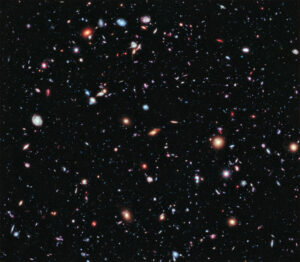
NASA, ESA, G. Illingworth, D. Magee, and P. Oesch (University of California, Santa Cruz), R. Bouwens (Leiden University), and the HUDF09 Team
Suggestion
So tonight, after reading, go outside and look to the heavens and see the face of a living, aging American leader. Now imagine it gone. And then what will we do?
